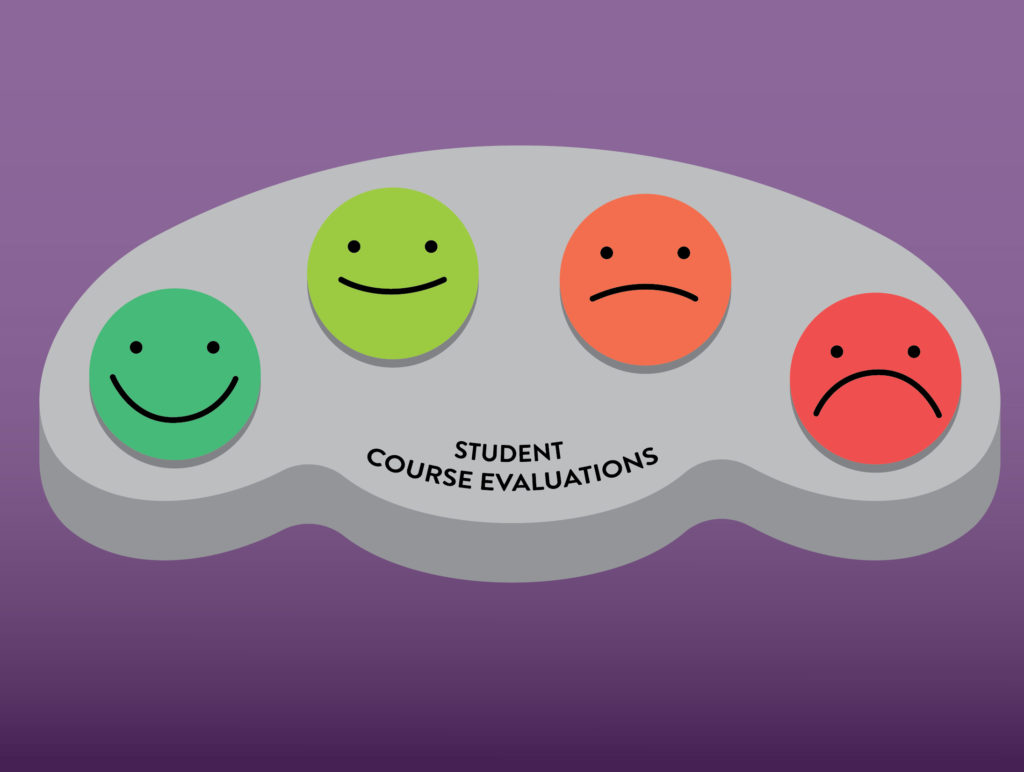Student evaluations are often considered nothing more than an opportunity for potential bonus points; though the impact they have on teachers could mean the end of a career.
Many members of the Seattle University community have expressed concern over the weight the school has placed on student evaluations— particularly given that they are at times used to inform hiring and firing decisions.
Ruchika Tulshyan, distinguished professional-in-residence in the Communications department, is concerned that student evaluations leave many opportunities for unfair judgment of professors.
Tulshyan has taught at Seattle U for nearly three quarters and has received virtually all positive feedback from her students. However, Tulshyan, who has written extensively on the subject of bias and inequality in the workplace, said schools should be more concerned about the impact of biases on evaluations.
Tulshyan published “The Diversity Advantage,” a book that explores gender inequality in the workplace and how bias plays a part in the way we view and treat people.
“The area of research I am interested in is how much bias comes into how we evaluate people, especially for female academics. Evaluations of female academics are usually based on how they look or their soft skills rather than the actual content of their classes,” Tulshyan said.
This could have significant consequences for many professors— especially women—given that students are more likely to unintentionally spend too much time focusing on aspects of a female professor that do not relate to the class content. This problem is far less common for male professors.
“This is where student evaluations can actually become counter-productive,” Tulshyan said.
However, it is difficult to remove bias from all situations, especially from subjective reviews.
Robert Dullea, vice president for planning and vice provost at Seattle U, explained how the school treats student evaluations.
“Areas where student evaluations are valuable and need to be given significant weight include whether the faculty member showed interest in the learning and success of a student, or whether the faculty member organized curriculum in ways that helped students to master skills and content,” Dullea said.
Though Seattle U has several methods of evaluating teachers, student evaluations can be greatly subject to unintentional biases.
Tulshyan mentioned that research has shown students expect their female professors to be much more available to help students outside of classroom hours than they would for male professors. To remedy this bias, Tulshyan recommended that evaluations should ask more targeted questions and that students should be more aware of their biases, especially towards women and those from marginalized communities.
Dullea said student evaluations could always be improved.
“Seattle University is continually looking to ensure that it is using methods and tools that are accurate and support the development of the faculty member,” Dullea said.
However, Dullea also goes on to mention that student evaluations are only one method used to evaluate teachers.
“Faculty have responsibilities in teaching, scholarship and service and are evaluated in all three areas,” Dullea said.
Cierrah Loveness, a criminal justice major at Seattle U mentioned how she believes that as long as other factors are considered alongside student evaluations, the system the school uses to evaluate teachers as a whole is effective.
“If a professor is let go after all their responsibilities being considered, then they probably needed to be let go, and that leaves room for a better professor to take their place,” Loveness said.
Though students and their evaluations are valued, the importance of a teacher who is capable in all aspects of their job is extremely important. Ultimately, it is up to the university to decide which teachers will be the best fit for the community as a whole.
The editor may be reached at
[email protected]













